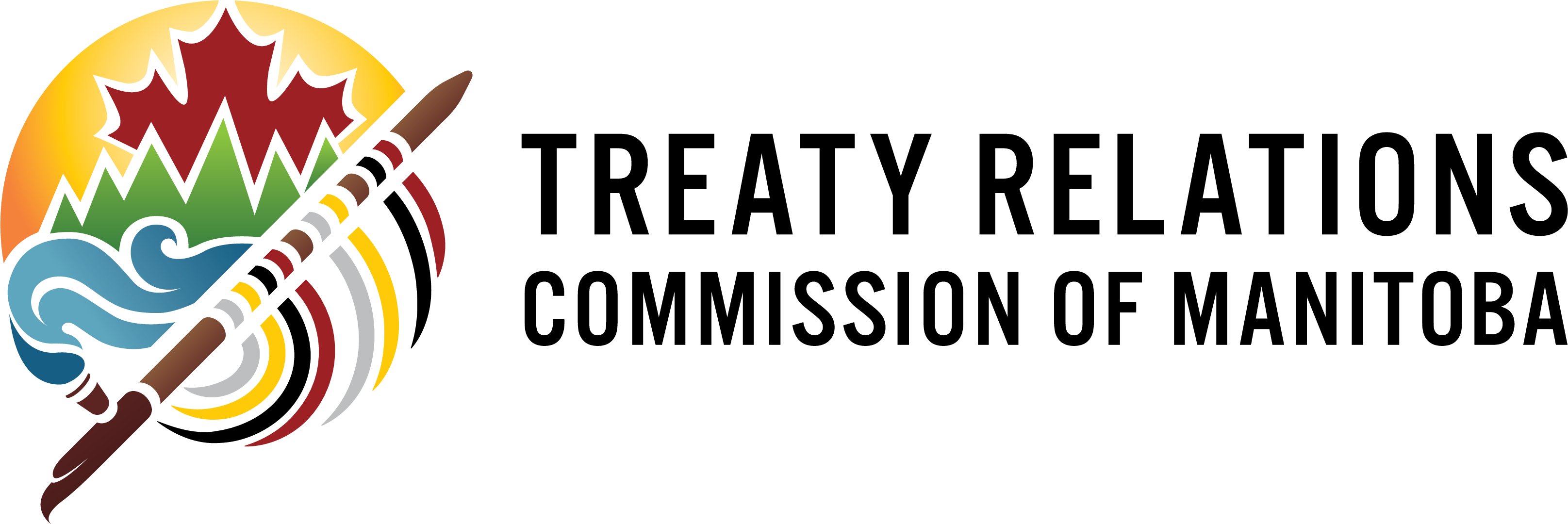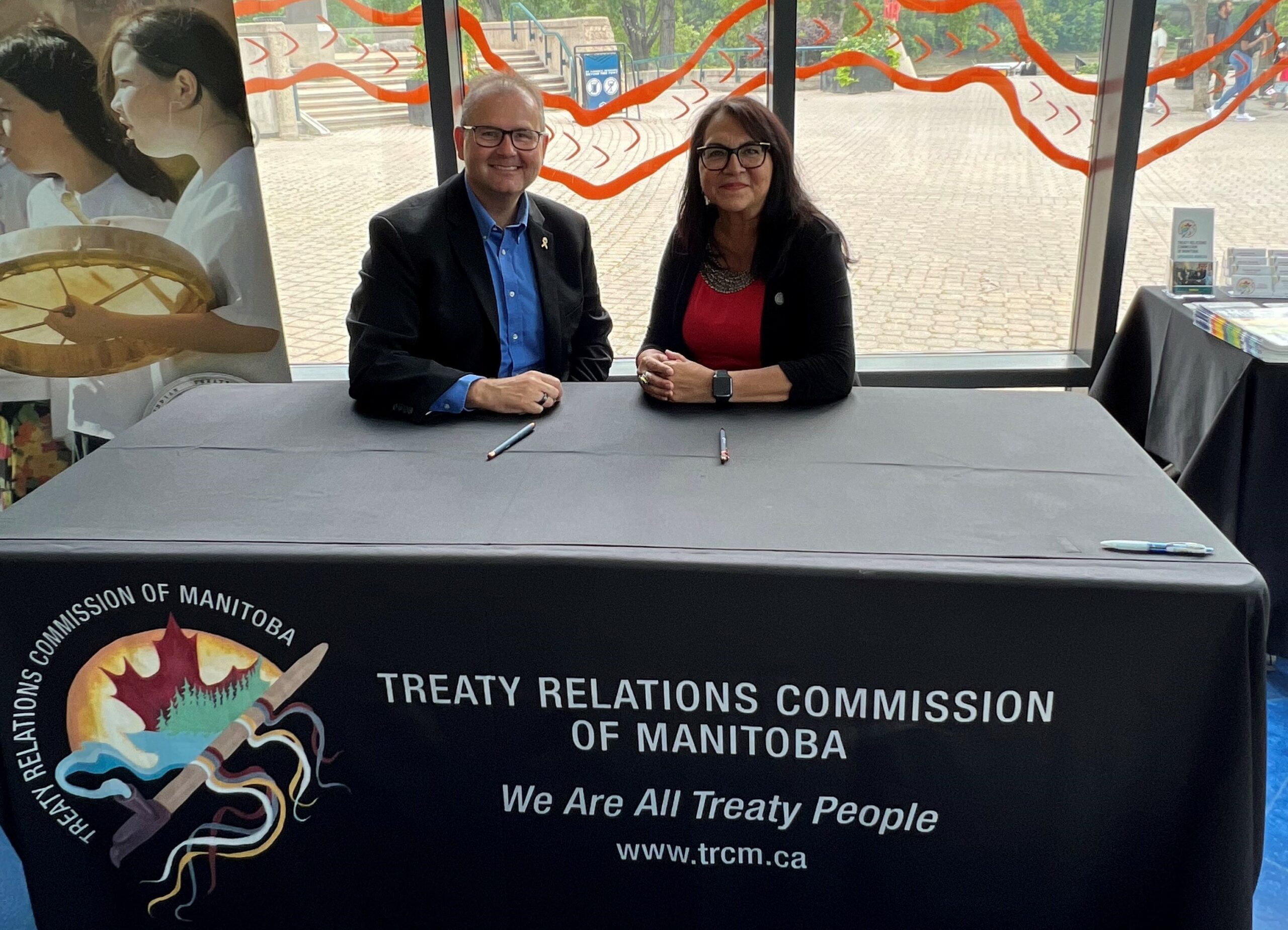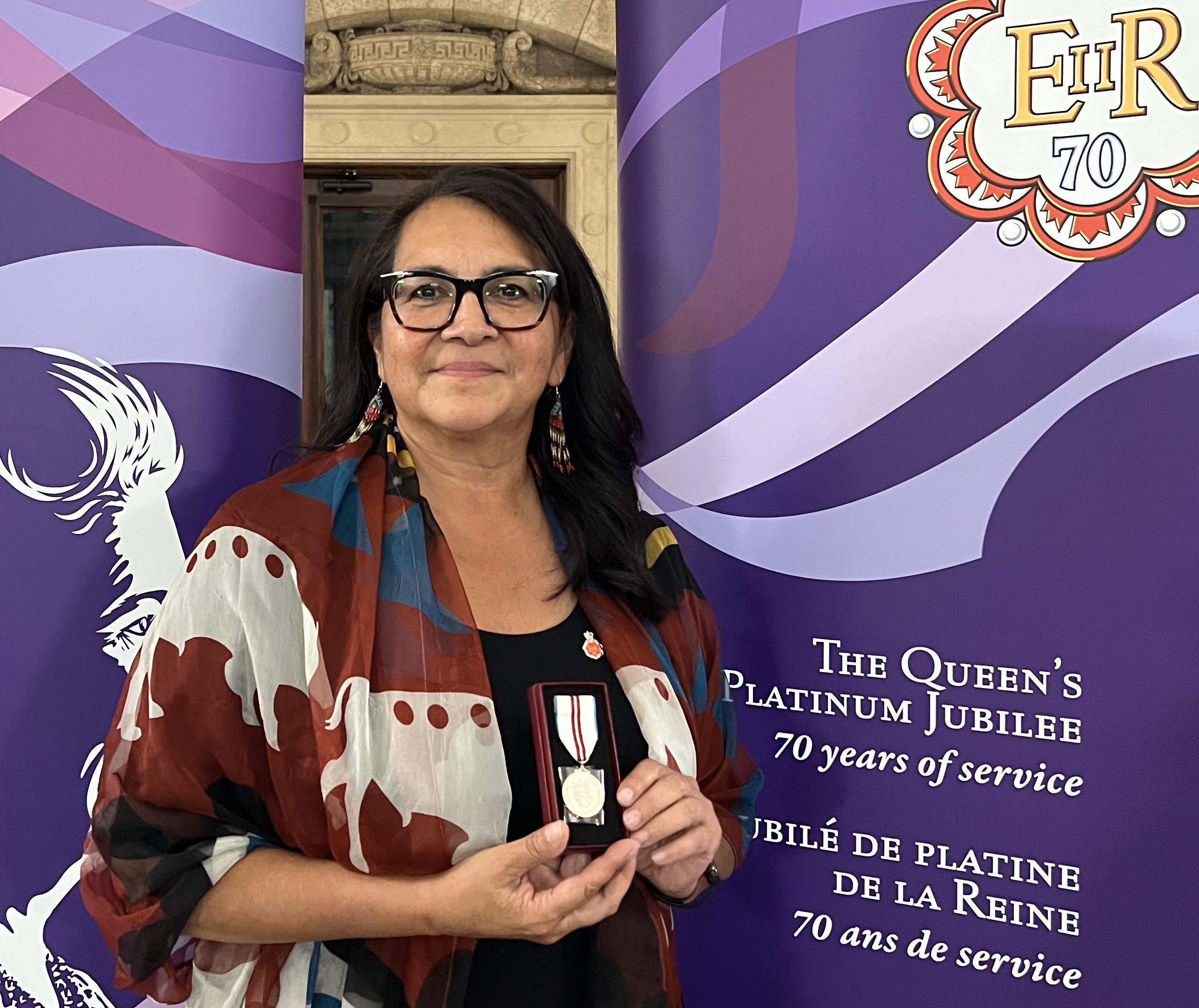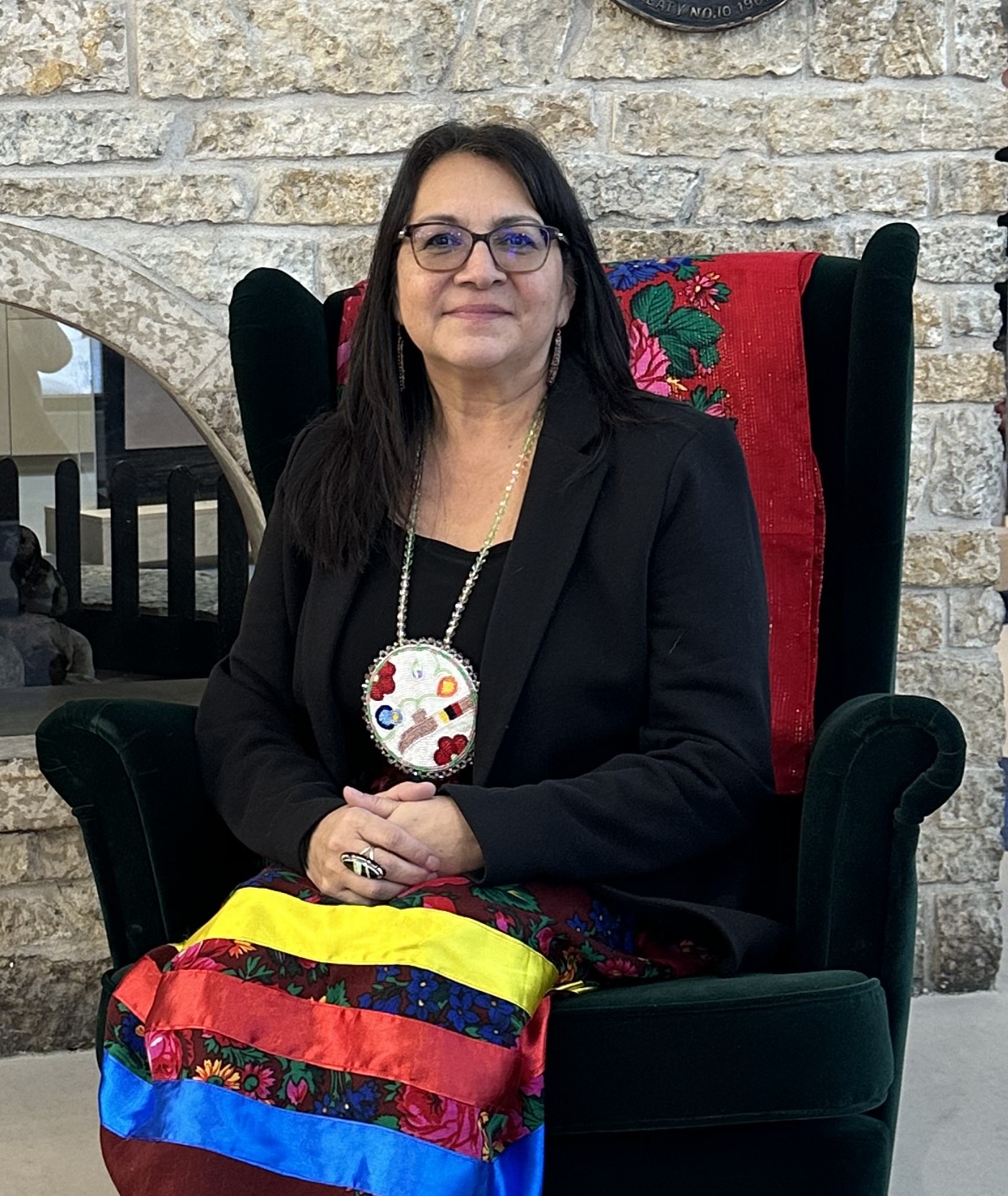Agowiidiwinan Centre at The Forks in Winnipeg
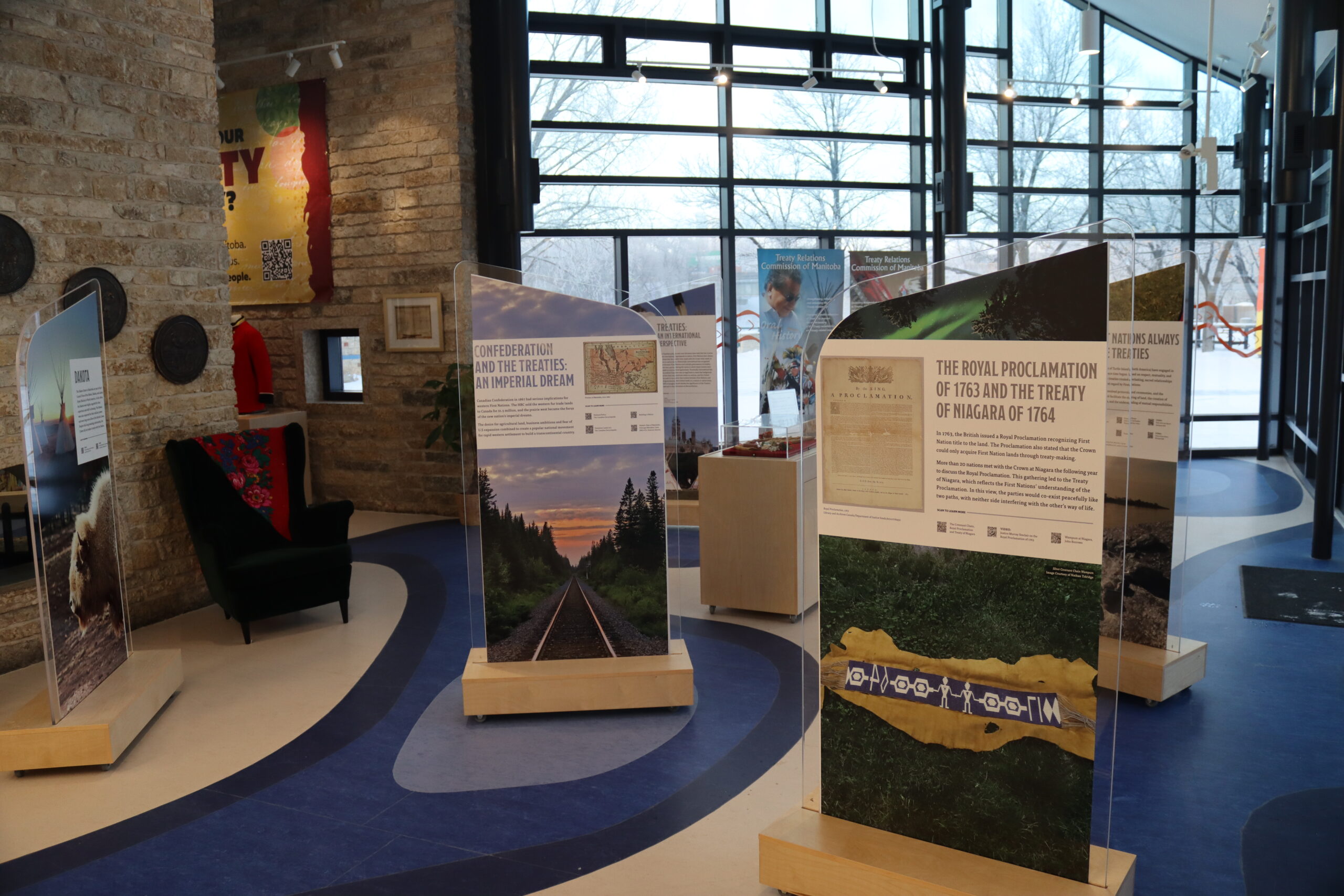
Interactive treaty education facility Agowiidiwinan Centre opens at The Forks in Winnipeg
Centre is ‘integral to building understanding that we are all treaty people,’ Forks CEO says a project three years in the making — but centuries deep in history — opened Thursday at The Forks in Winnipeg.
People can visit the Agowiidiwinan Centre to learn about treaties through visual and interactive tools, as well as through treaty education sessions and special events still to be planned, according to the Treaty Relations Commission of Manitoba, which developed the facility.
Located at 15 Forks Market Road (formerly Muddy Waters Restaurant), Agowiidiwinan stands at the top of the riverbank, steps from where the Red and Assiniboine rivers meet and where First Nations people camped and traded for more than 6,000 years.
“You feel the spirit of our respective ancestors here and I think they’re guiding us to move forward together,” said Manitoba Treaty Commissioner Loretta Ross at a grand opening event Thursday morning.
“It means the world to me to see this become a reality.”
The centre will enable broader public engagement and education about treaty histories and the relationships and responsibilities that are indelibly linked to them, the Treaty Relations Commission said.
Agowiidiwinan means “bringing things together” in the Anishinaabemowin language, Ross said, adding it can be shortened to mean “treaties.”
“The high-traffic area of The Forks allows us to create a publicly accessible environment that showcases oral history, archival history and a contemporary understanding of treaties, that will provide tools to assist us on the reconciliation journey,” Ross said.
“The Agowiidiwinan Centre will take people on a journey through time. It provides some of the history of treaty-making leading up to the treaties between First Nations and the British Crown, but also looks at aspects of the contemporary relationship, which are rooted in the treaties.”
The TRCM has been working with elders and knowledge keepers to create the vision for the space, which will store and share oral, historical and archival information.
Manitoba is connected to Treaties 1-6, as well as 10. The traditional lands of the Anishinaabeg, Cree, Oji-Cree, Dakota and Dene peoples, and the homeland of the Métis Nation, can be found within the province.
- Manitoba First Nations commemorate 150th anniversary of Treaty 1 signing
- Treaties from 1760 – 1923: Two sides to the story
“The Agowiidiwinan Centre is integral to building understanding that we are all treaty people, and this centre will create connections between our diverse communities,” said Sara Stasiuk, CEO of The Forks North Portage Partnership, at the opening event.
“We are so happy to welcome the Treaty Relations Commission and their beautiful new knowledge centre to this site.”
Winnipeg is located in Treaty 1 territory. That treaty was signed on Aug. 3, 1871, by the Anishinaabe and Muskegon Cree peoples and the Crown with the understanding the treaty would be in place for “as long as the sun shines, the grass grows and the river flows.”
But what was thought to be the start of a mutually beneficial relationship didn’t turn out that way. Governments have failed to uphold treaty obligations, from land and resource promises to Indigenous rights and access to basic services.
- ‘We have consistently failed’ to live up to treaty intent
- Treaty 5 chiefs say Manitoba is failing to live up to its duty to consult on resource projects
The Final Report of the Truth and Reconciliation Commission of Canada in 2015 identified a lack of historical knowledge about treaties on the part of the broader Canadian community.
As such, the commissioners called on all levels of government and other organizations in Canada to provide various forms of public education.
The Truth and Reconciliation Commission issued 94 calls to action, several of which address the lack of historical knowledge regarding Indigenous histories, treaties and the treaty relationship among Canadians.
“The Agowiidiwinan Centre provides a balanced view of our shared history, some of which has been left out of history books and classrooms,” said Ross.
“A large part of the Canadian system is built on one perspective with respect to treaties. So we hope through here we can offer a balanced perspective so that we can move forward in a substantive and significant way that can effect real change.”
The centre will be open Monday to Friday from 9 a.m. until 5 p.m. with the goal to have the hours align with those of The Forks Market in the future.
Currently, the centre’s exhibits are all in English, but there are plans to add Indigenous languages, French and to make it accessible to those who are hearing or sight impaired, Ross said.

Darren Bernhardt · CBC News · Posted: Dec 15, 2022
